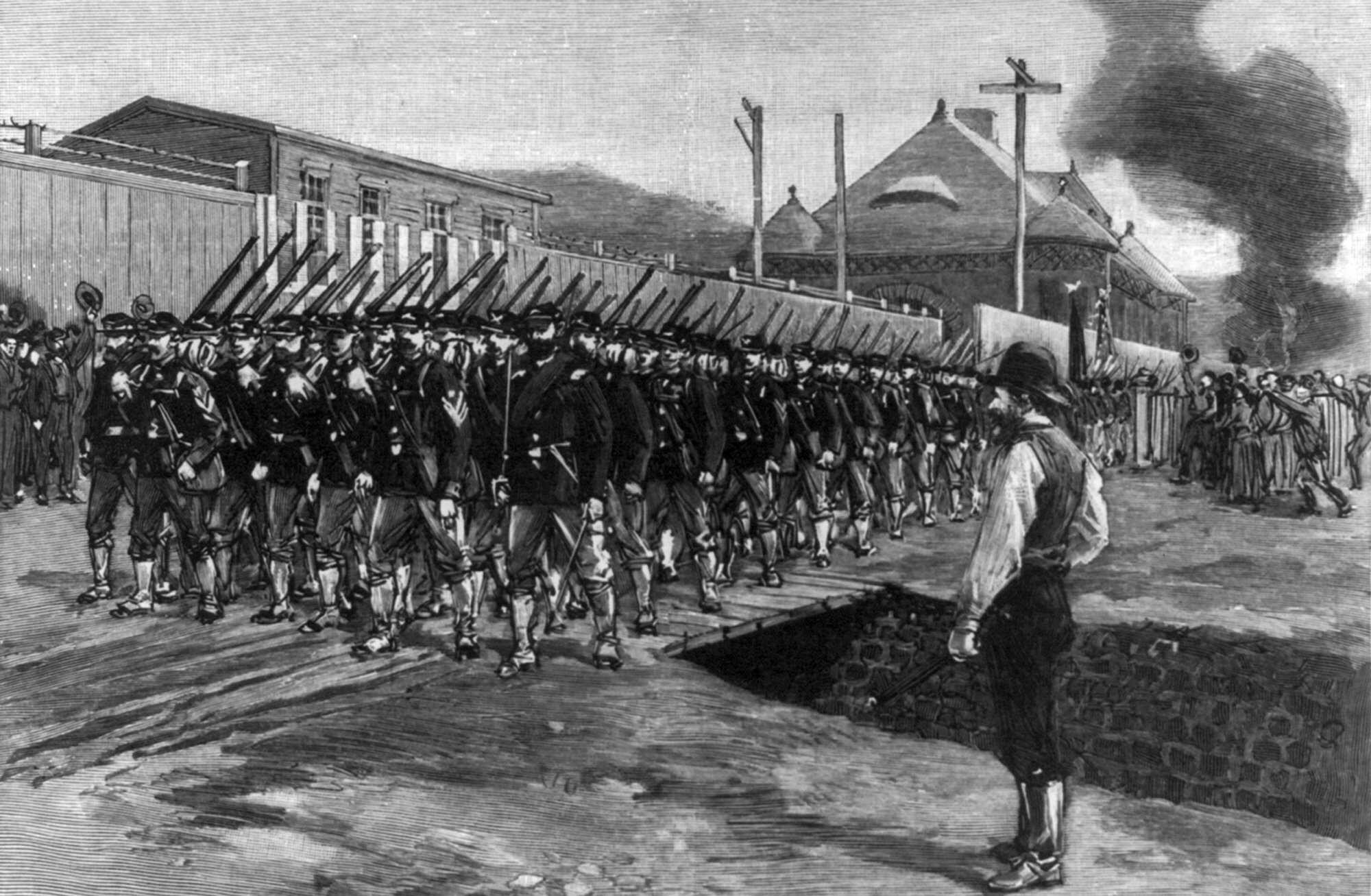Today in Labor History September 30, 1892: In the wake of the Homestead Steel Strike, union leaders were prosecuted for the crime of treason for the first time in U.S. history. Henry C. Frick, chairman of the Carnegie Steel Company, convinced the chief justice of the Pennsylvania Supreme Court to issue warrants for the arrests of every member of the advisory board of the striking steel union for treason against the state. The 29 strike leaders were ultimately charged with plotting "to incite insurrection, rebellion & war against the Commonwealth of Pennsylvania." During the strike, Pinkerton detectives killed seven workers, who were protesting wage cuts of 18-26%. Alexander Berkman tried to assassinate Frick, but failed, and spent many years in prison. He wrote about his imprisonment, and about anarchism, in his “Prison Memoirs of an Anarchist,” published by Emma Goldman’s Mother Earth Press.
Read my article about the Pinkertons …
Today in Labor History September 30, 1892: In the wake of the Homestead Steel Strike, union leaders were prosecuted for the crime of treason for the first time in U.S. history. Henry C. Frick, chairman of the Carnegie Steel Company, convinced the chief justice of the Pennsylvania Supreme Court to issue warrants for the arrests of every member of the advisory board of the striking steel union for treason against the state. The 29 strike leaders were ultimately charged with plotting "to incite insurrection, rebellion & war against the Commonwealth of Pennsylvania." During the strike, Pinkerton detectives killed seven workers, who were protesting wage cuts of 18-26%. Alexander Berkman tried to assassinate Frick, but failed, and spent many years in prison. He wrote about his imprisonment, and about anarchism, in his “Prison Memoirs of an Anarchist,” published by Emma Goldman’s Mother Earth Press.
Read my article about the Pinkertons here: https://michaeldunnauthor.com/2024/04/04/union-busting-by-the-pinkertons/
#workingclass #LaborHistory #carnegie #homestead #steel #strike #union #pinkerton #anarchism #union #treason #rebellion #alexanderberkman #EmmaGoldman #prison #memoir #books #author #writer @bookstadon










